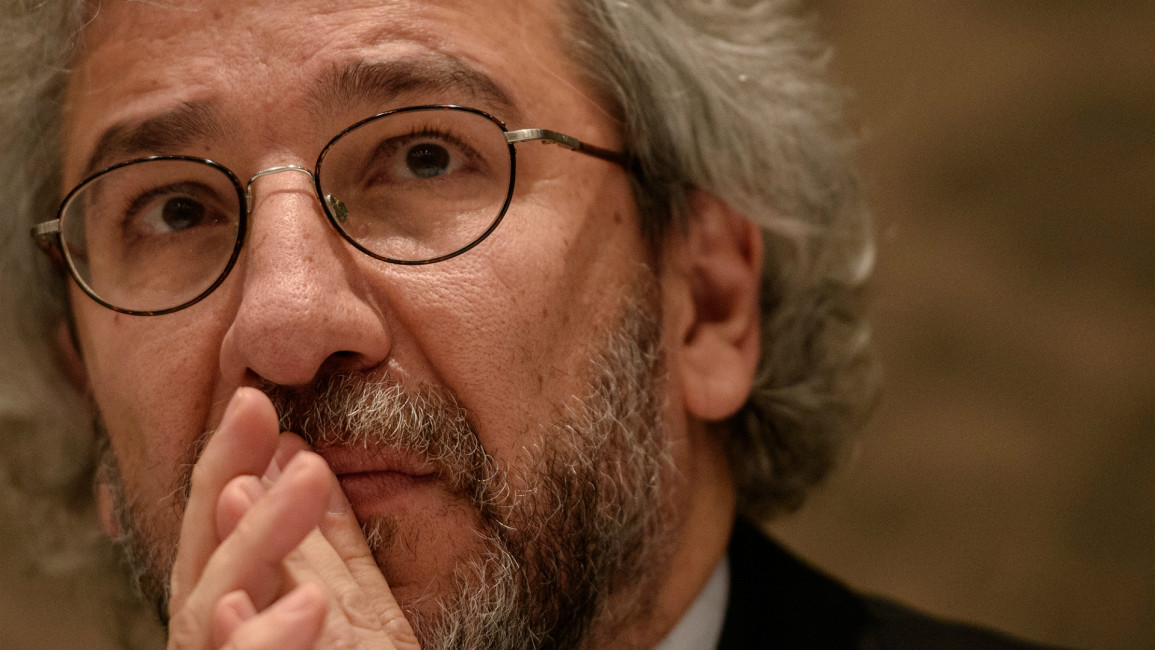Turkish journalist vows to put state's 'crimes' on trial
The editor of one of Turkey's leading newspapers, who was recently released after three months in detention, has vowed to expose the government's "crimes" when his trial begins later this month.
The Cumhuriyet newspaper's editor-in-chief, Can Dundar, and Ankara bureau chief, Erdem Gul, were released from jail last week by Turkey's top court, but still face charges of revealing state secrets and espionage.
"Right from the first hearing of our trial, on March 25, we will throw all light on the crimes of the state," Dundar told a news conference in Istanbul.
"We are not going to defend ourselves, we will put the crimes of the state on trial," he added.
The pair had been in detention since November over a story alleging that President Recep Tayyip Erdogan's government had tried to deliver arms to Islamist rebels in Syria.
The report sparked a furore, fuelling speculation about the government's role in the Syrian conflict and its alleged dealings with Islamist rebels.
Their arrest also amplified concerns about press freedom under Erdogan, who personally warned Dundar he would "pay a price" for the story.
Dundar said a stretch in prison was par for the course for Turkish journalists.
"If you are a journalist in Turkey, going to prison will be part of your career plan," he said.
"We are journalists, not civil servants. Our duty is to inform the public, including about the illegal acts of the government," he said, denouncing the "climate of fear propagated by the Erdogan regime among journalists."
 |
If you are a journalist in Turkey, going to prison will be part of your career plan |  |
Erdogan had said on Sunday he had "no respect" for the Constitutional Court's decision to release the pair, prompting accusations from the opposition that he was trampling on the Turkish constitution.
"Through his declarations, Erdogan transformed an internal question into an international affair," said Dundar.
The Constitutional Court, Turkey's highest, is one of the very few public institutions in the country not controlled by Erdogan who enjoys the support of a loyal army, parliament and government.
In a rare public intervention, the president of the court Zuhtu Arslan pointedly said on Tuesday that the court's decisions applied to everyone "including leaders as well as citizens."
But Justice Minister Bekir Bozdag rapidly accused the Constitutional Court of violating "the constitution and the law."
Prime Minister Ahmet Davutoglu accused it of "interference" in an ongoing legal process.
However, former Turkish deputy prime minister Bulent Arinc, a one time ally of Erdogan who has sharply criticised him in recent weeks, on Wednesday said he backed Arslan and congratulated him on the decision.



